Related Research Articles

Cameroon's noncontentious, low-profile approach to foreign relations puts it squarely in the middle of other African and developing country states on major issues. It supports the principles of non-interference in the affairs of third world countries and increased assistance to underdeveloped countries. Cameroon is an active participant in the United Nations, where its voting record demonstrates its commitment to causes that include international peacekeeping, the rule of law, environmental protection, and Third World economic development. In the UN and other human rights fora, Cameroon's non-confrontational approach has generally led it to avoid criticizing other countries.
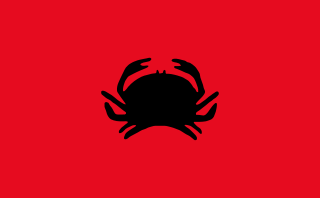
The Union of the Peoples of Cameroon is a political party in Cameroon. It was one of the main belligerents in the Cameroon War.

The Ministry of Justice of Cameroon is the Department responsible for administering the Cameroon justice system. As of May 2004, the Minister of State for Justice was Amadou Ali. The legal system in the Cameroon is complex with a constitution developed in 1972 and revised in 1996 as well as elements of the Code Napoleon, Common Law and customary law. In early 2005, the Ministry of Justice became responsible for administering the prison system due to unrest in the prisons. The Ministry of Justice also has a shared responsibility for administering human rights in the Cameroon. There have been serious allegations about use of torture by police and military officials in the Cameroon.

Andre-Marie Mbida was a Cameroonian statesman, a nationalist, the first Cameroonian to be elected Member of Parliament at the French National Assembly, a Prime Minister of Cameroon, the second African-born Prime Minister in Sub-Saharan Africa, the first Head of State of French-speaking autonomous Cameroon from 12 May 1957 to 16 February 1958, and the first political prisoner of independent Cameroon from 29 June 1962 to 29 June 1965.
Sadou Hayatou was a Cameroonian politician. Hayatou served as the 4th Prime Minister of Cameroon from 26 April 1991 to 9 April 1992.

Postage stamps have been used in Cameroon or Cameroun since the nineteenth century.
Louis-Paul Motazé is a Cameroonian politician who has served in the government of Cameroon as Minister of the Economy since 2015. He previously served as Minister of the Economy from 2007 to 2011 and as Secretary-General of the Office of the Prime Minister of Cameroon from 2011 to 2015. Since 2 March 2018, he has been Minister of Finance of Cameroon.

Matomb, located in the Nyong-et-Kéllé department of Cameroon's Centre Region, is a commune situated approximately 65 kilometers southwest of Yaoundé. It serves as the administrative center for the arrondissement bearing the same name. The commune encompasses several villages, including Bingongog, Bomtol, Boumbone, Kombeng, Lamal-Pouguè, Lissé, Mambine, Mandoga, Mandoumba, Manguèn I, Manguèn II, Manyaï, Mawel, Mayebeg, Mayos, Mbemndjock, Mbeng, Nganda, Ngoung, Nkenglikok, Nkongtock, and Pan-Pan.
Jules Ninine was a politician from Guadeloupe who served and represented Cameroon in the French National Assembly from 1946 to 1958.
The National Archives of Cameroon is the national archives of Cameroon, established in 1966. Its main location is in Yaoundé and has a library which holds 64,000 volumes. There is an annex in Buea with early material. Maintenance of the National Archives falls within the responsibilities of the Ministry of Arts and Culture. The archive closed in 2016 for what promises to be a long running reorganization and digitization of its files. Researchers can still request access by writing to the director with a list of specific documents they wish to access. It is also possible to order digital photos of documents for a fee.
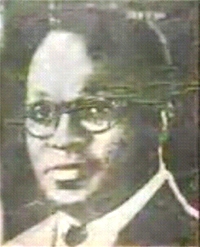
Castor Osendé Afana was a Marxist economist and militant nationalist who died in 1966 while fighting as a guerrilla against the government of Cameroon.

The Senate is the upper house of the Parliament of Cameroon. It consists of 100 members with 70 of them being elected and 30 being appointed by the President of Cameroon, divided among the ten regions of the country.

The Native Baptist Church of Cameroon is a Baptist Christian denomination in Cameroon. It is affiliated with the Baptist World Alliance. The headquarters is in Douala.
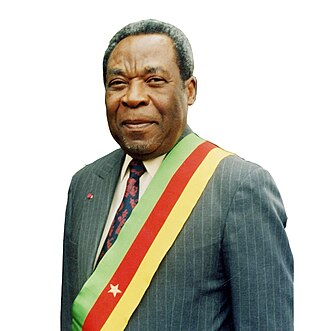
Marcel Niat Njifenji is a Cameroonian politician who has been President of the Senate of Cameroon since 2013. A member of the ruling Cameroon People's Democratic Movement (RDPC), he previously served for years as Director-General of the National Electricity Company, and he was also a minister in the government during the early 1990s.

Coffee production is very important for the economy of Cameroon The crop is grown extensively in the country, with robusta more prevalent in the coastal areas and arabica more widespread in the western highlands. The two varieties of arabica cultivated are Java and Jamaïca of which only Java is resistant to pests such as coffee berry disease and rust. In 2014, Cameroon was ranked the 31st largest producer of coffee in world.
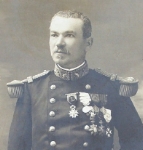
Joseph Gaudérique Aymerich was a French military officer in its colonial empire.
Blind football in Cameroon is a sport played by people with vision impairments in Cameroon. The sport is currently in the development stage, with various activities supporting these efforts. A national competition for the sport took place in September 2016.
Blind sports in Cameroon include goalball, torball, athletics, African wrestling, judo and 5-a-side football. Blind sports first began in the 2000s, with Cameroon participating in national and international competitions, and hosting workshops. In 2010, a new law was passed to try to increase enforcement of making buildings handicap accessible.
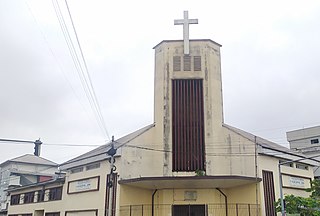
The Union of Baptist Churches of Cameroon is a Baptist Christian denomination in Cameroon. It is affiliated with the Baptist World Alliance. The headquarters is in Douala.

The Ministry of Finance of Cameroon is responsible for the public finance policies of Cameroon.
References
- ↑ "Histoire du ministère des Finances, Cameroun". Osidimbea La Mémoire du Cameroun. Encyclopédie, annuaire. Histoire des organisations.
- ↑ "Anciens sénateurs IVème République : N'JOYA Arouna". www.senat.fr. Retrieved 2021-04-22.
page on the French Senate website